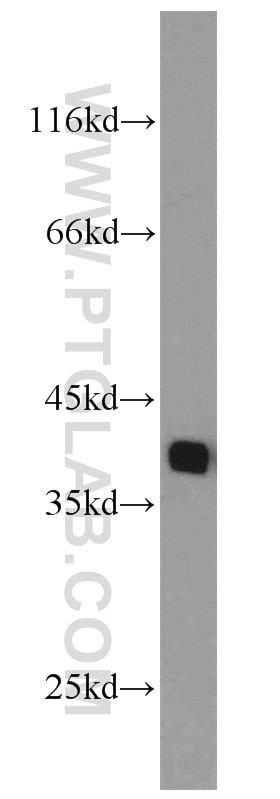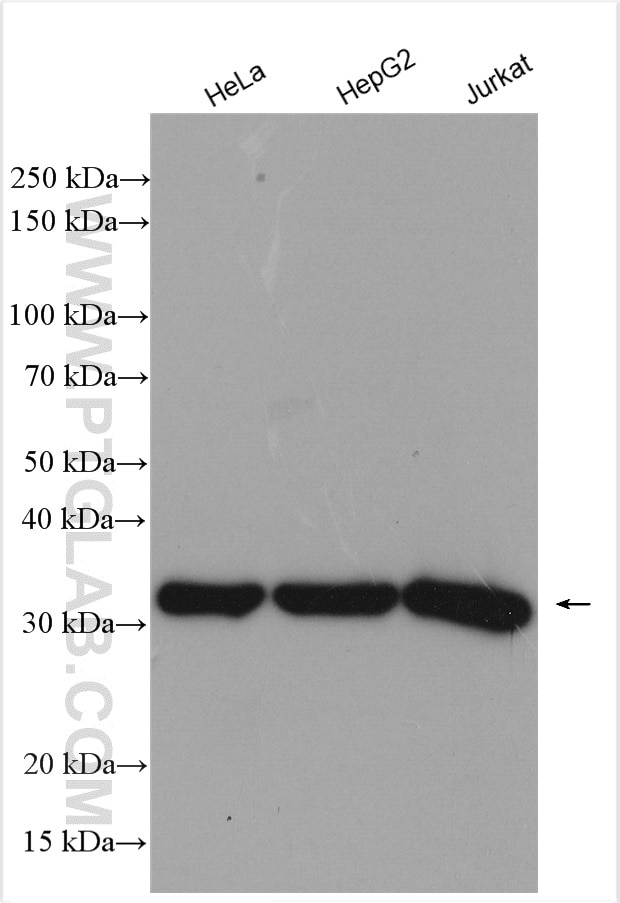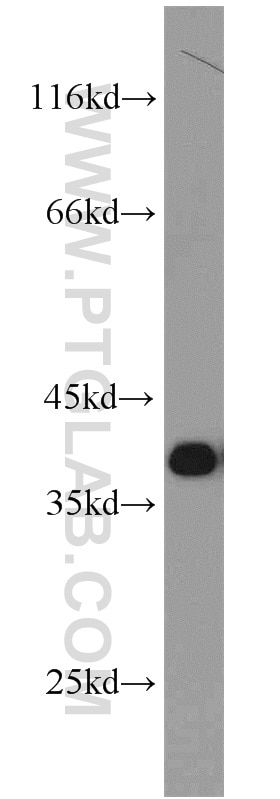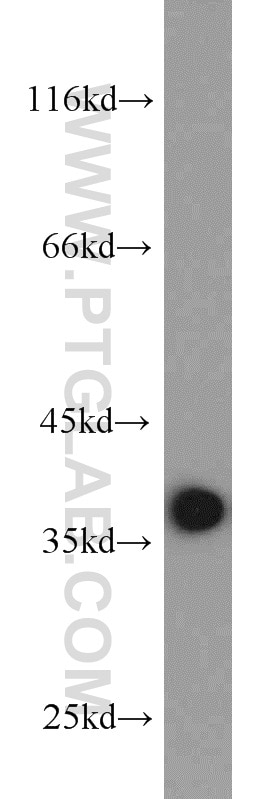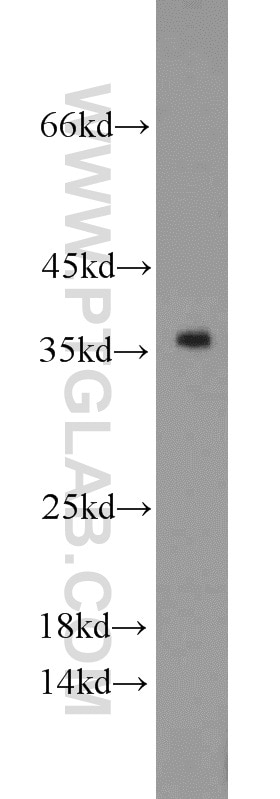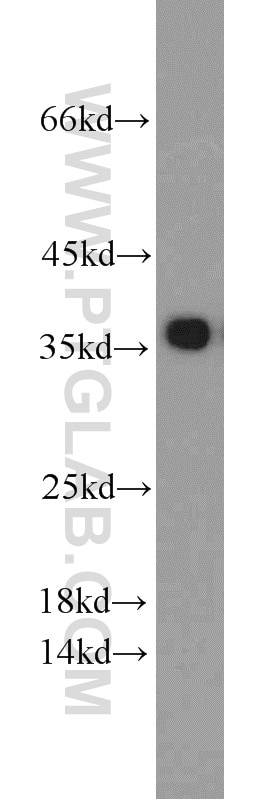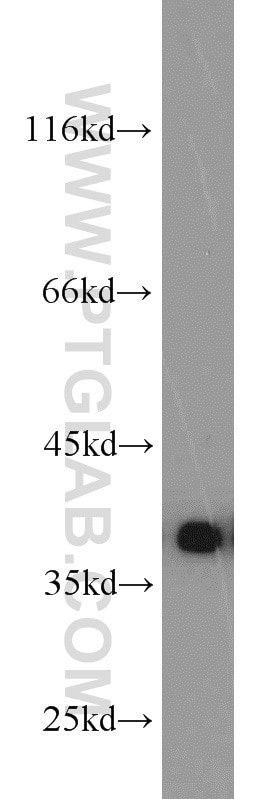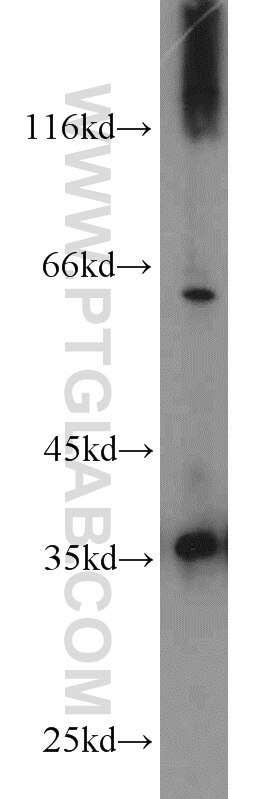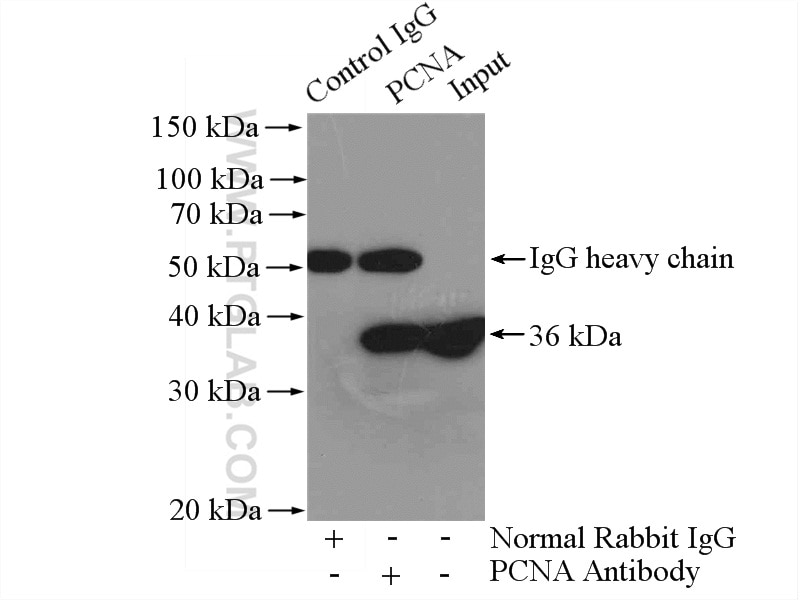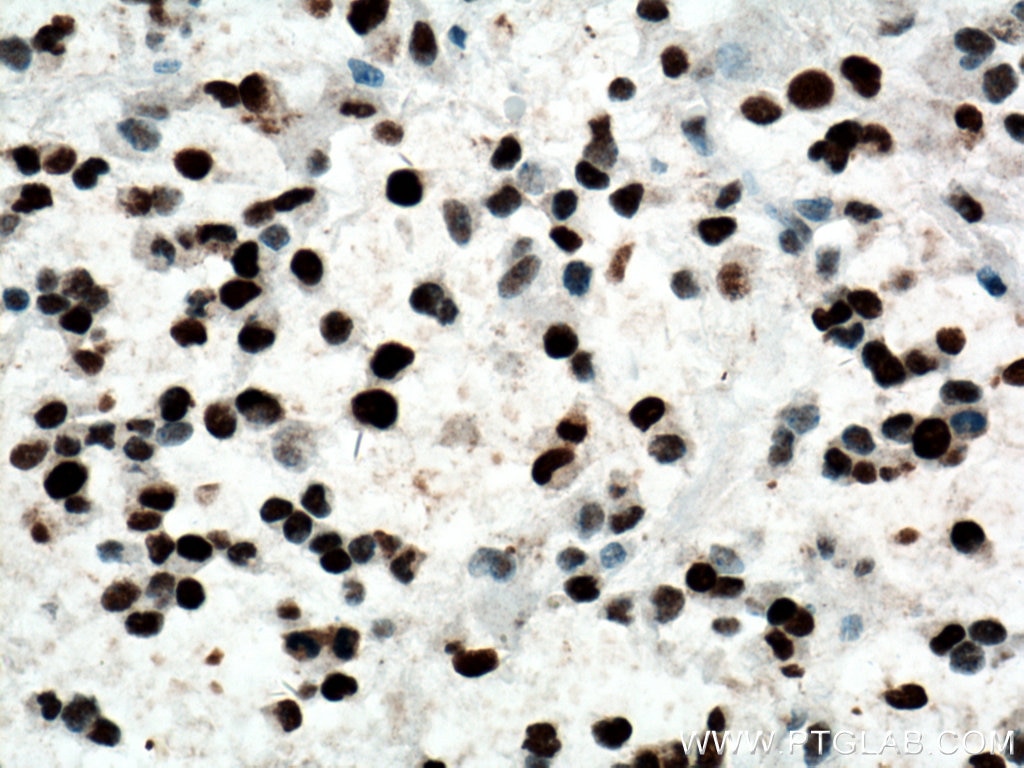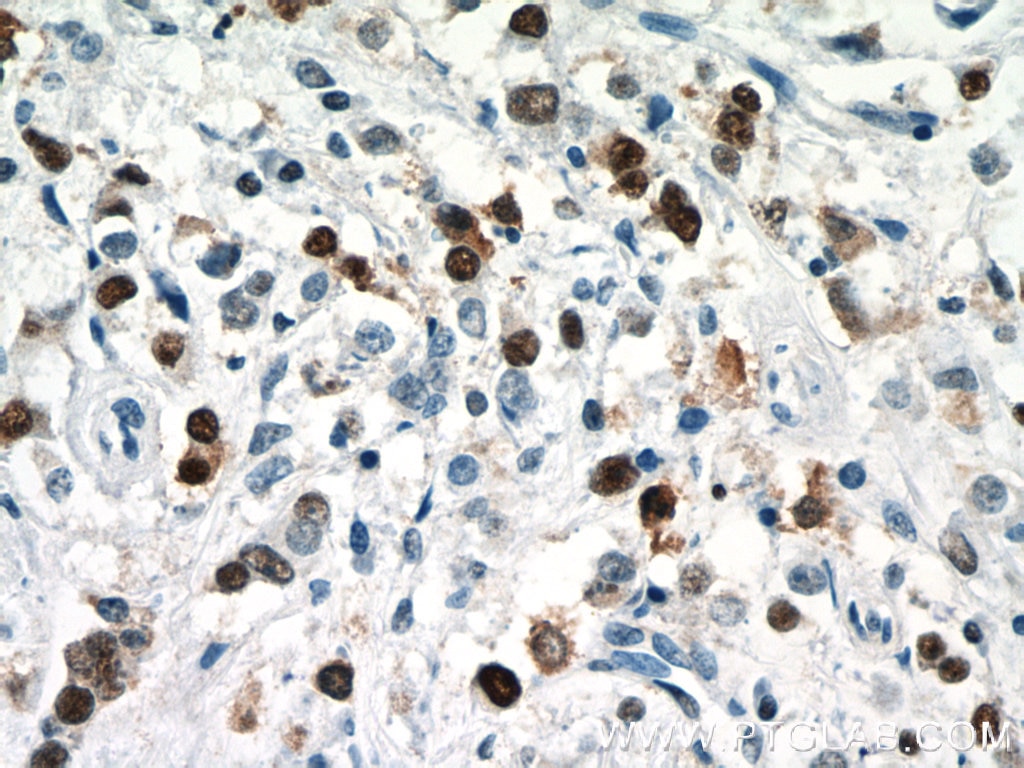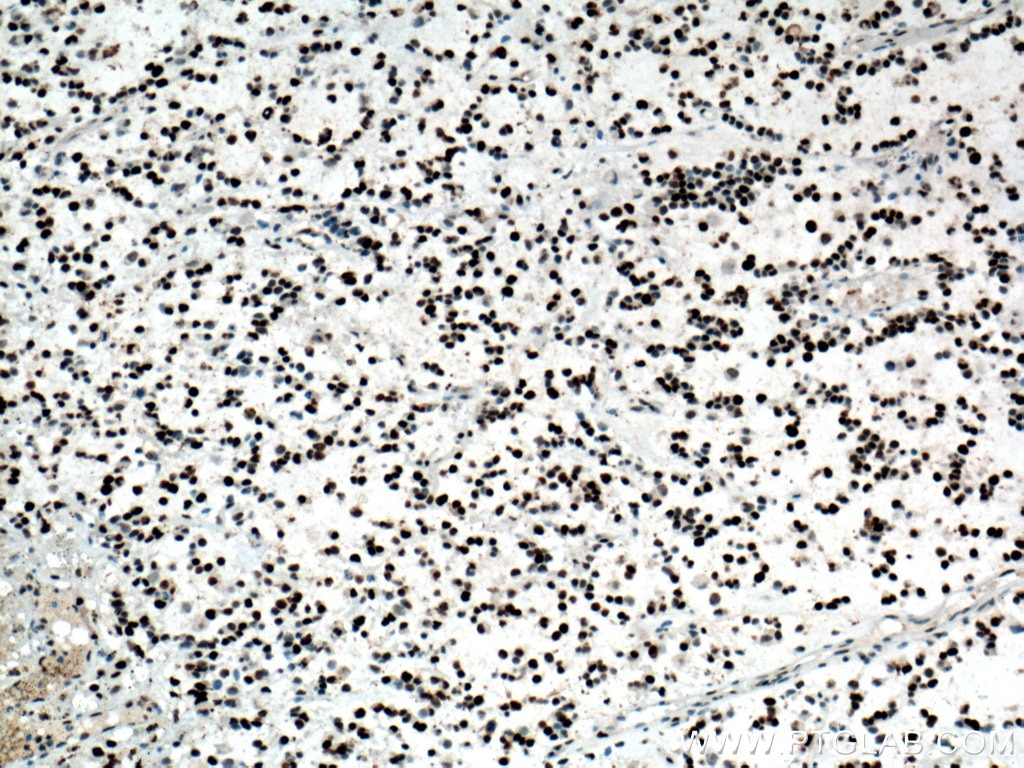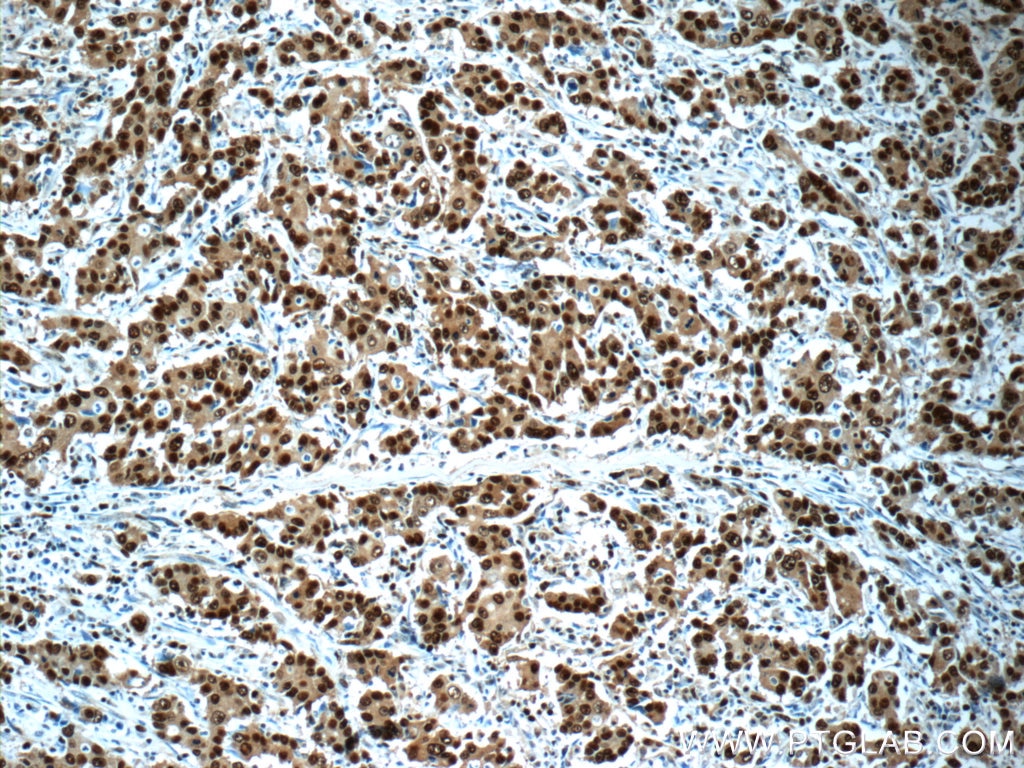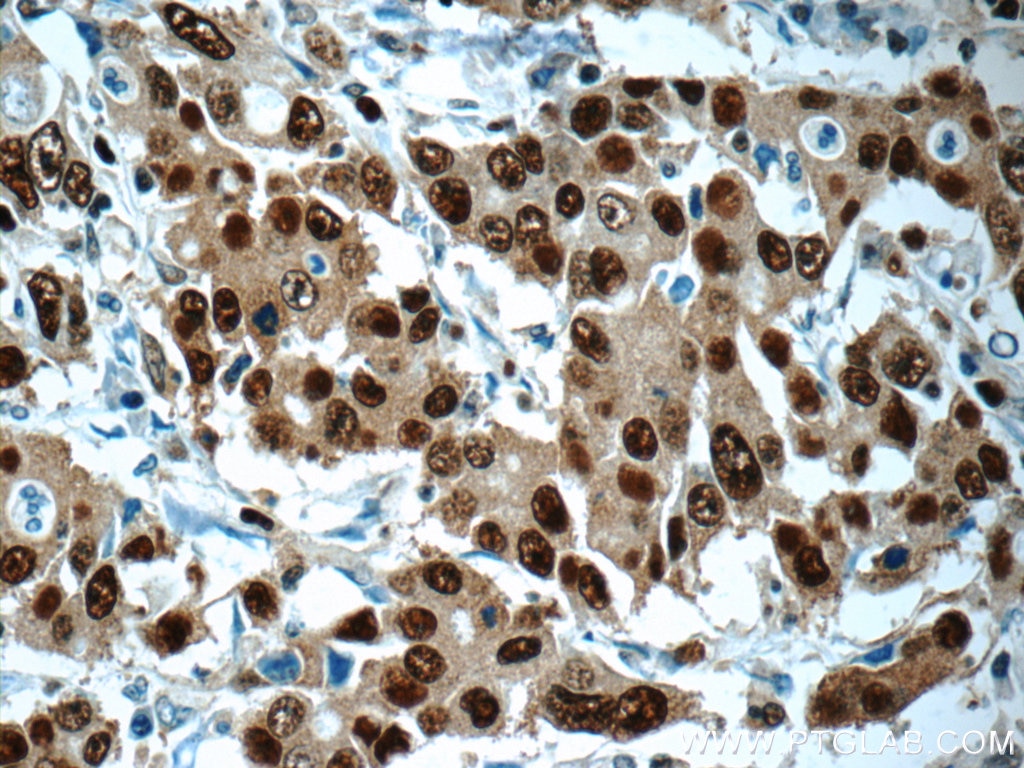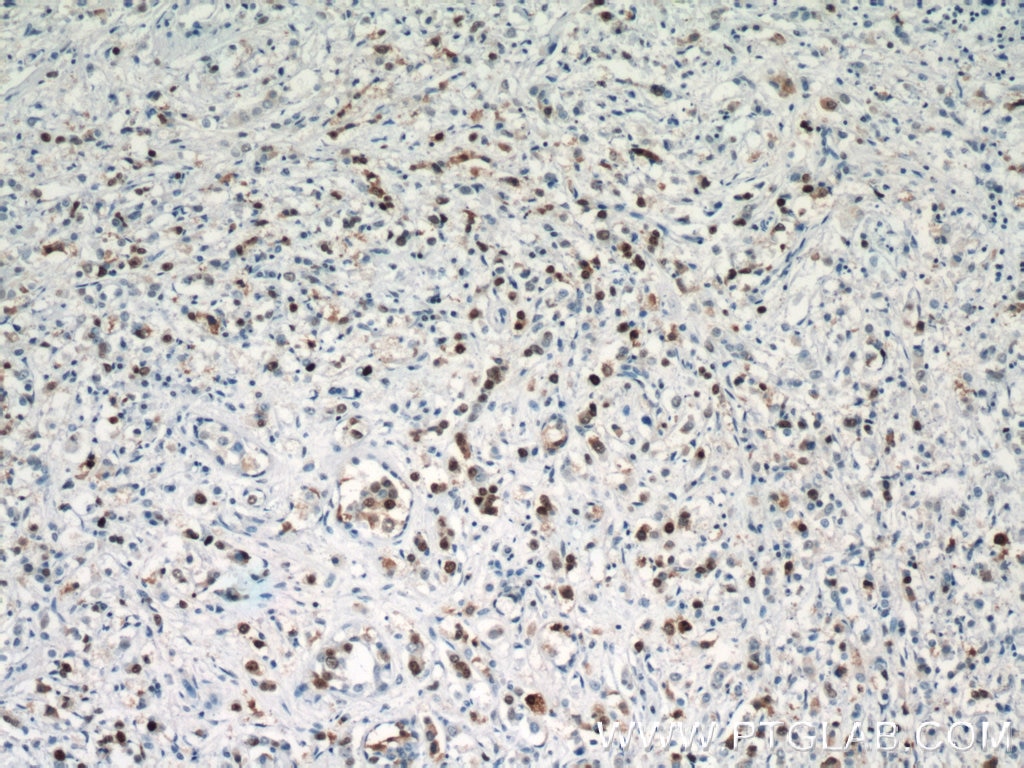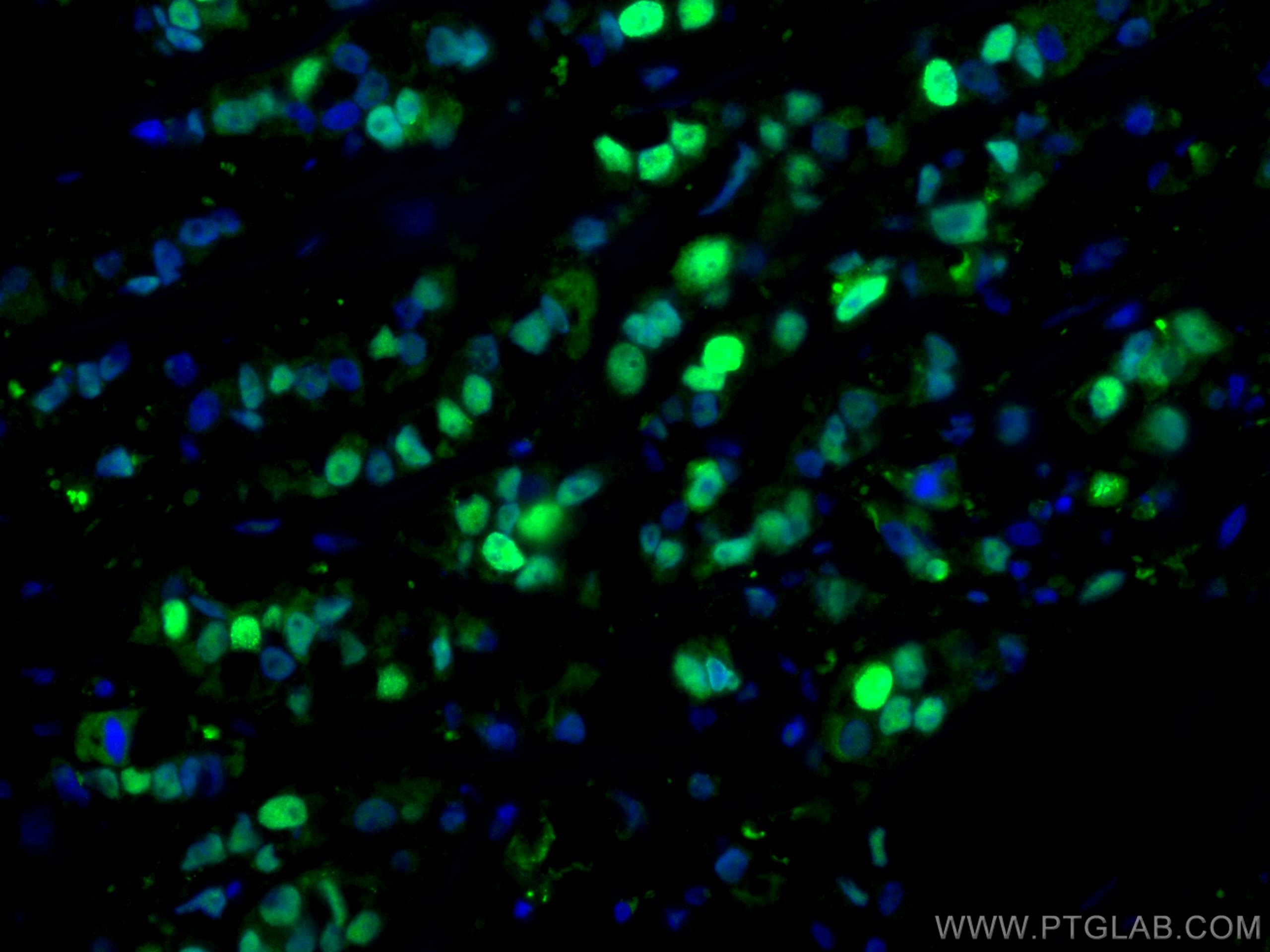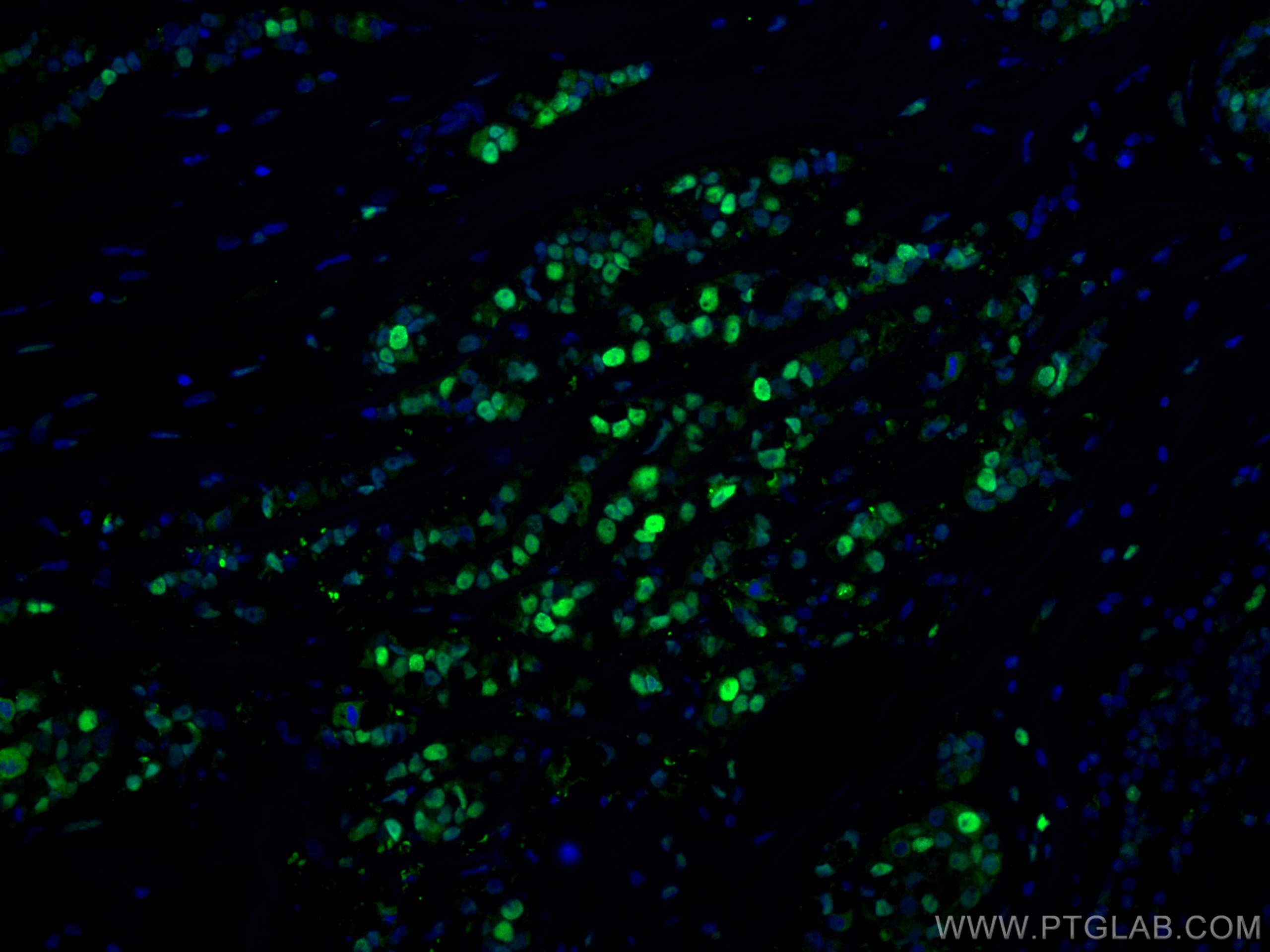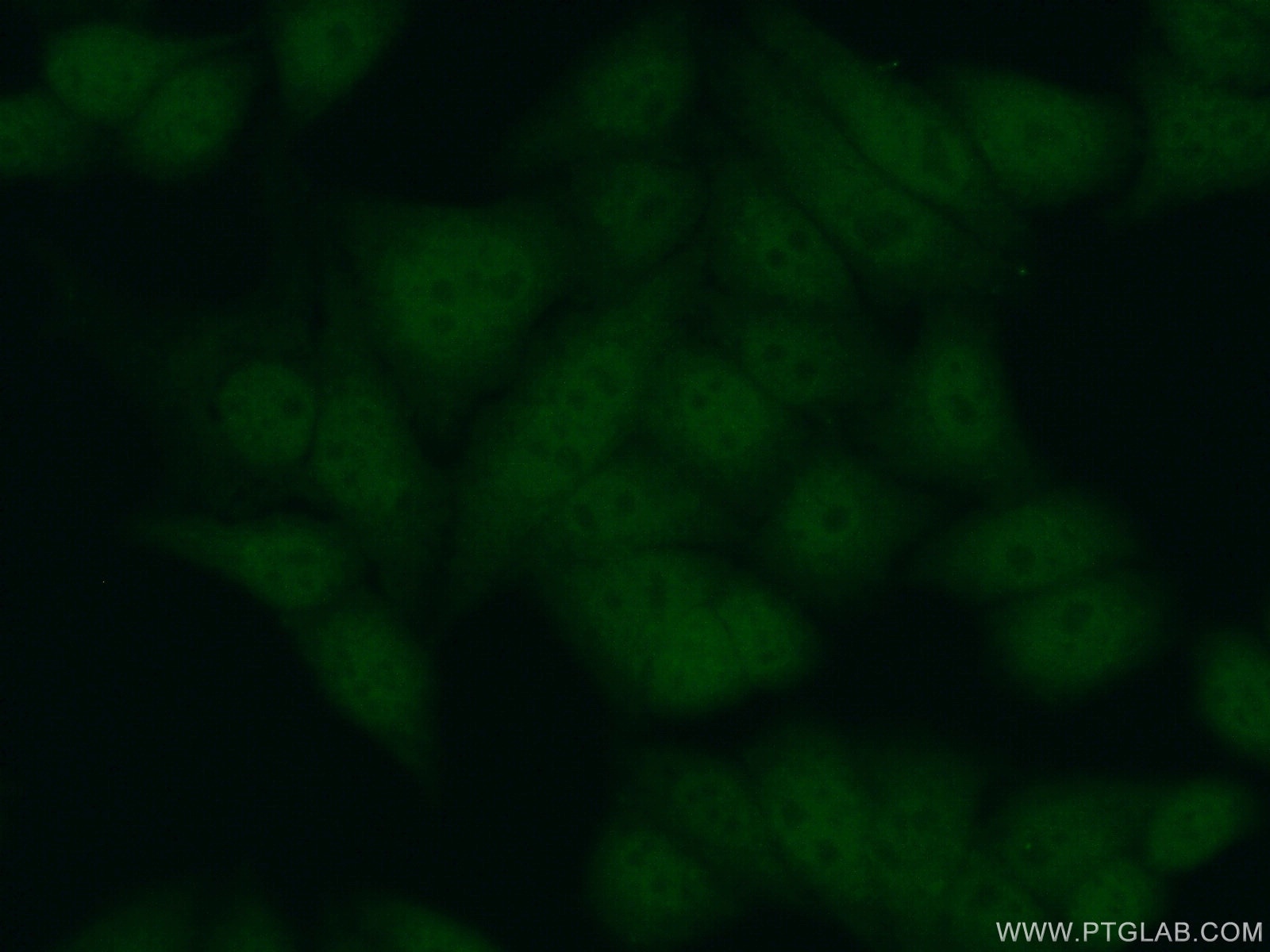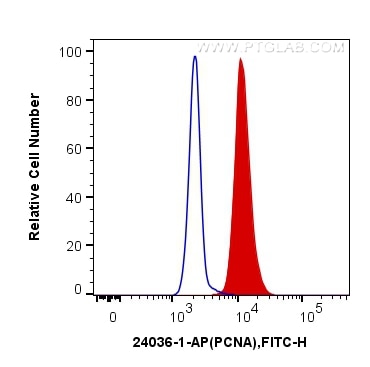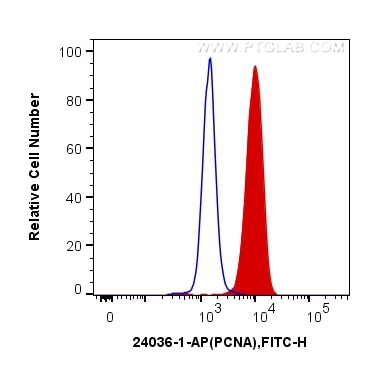PCNA Polyklonaler Antikörper
PCNA Polyklonal Antikörper für FC, IF, IHC, IP, WB, ELISA
Wirt / Isotyp
Kaninchen / IgG
Getestete Reaktivität
human, Maus, Ratte
Anwendung
WB, RIP, IP, IHC, IF, FC, ELISA
Konjugation
Unkonjugiert
Kat-Nr. : 24036-1-AP
Synonyme
Galerie der Validierungsdaten
Geprüfte Anwendungen
| Erfolgreiche Detektion in WB | HeLa-Zellen, HEK-293-Zellen, HepG2-Zellen, Jurkat-Zellen, Maushodengewebe, MCF-7-Zellen, NIH/3T3-Zellen, Raji-Zellen, Rattenlebergewebe |
| Erfolgreiche IP | HEK-293-Zellen |
| Erfolgreiche Detektion in IHC | humanes Mammakarzinomgewebe, humanes Gliomgewebe, humanes Magenkrebsgewebe Hinweis: Antigendemaskierung mit TE-Puffer pH 9,0 empfohlen. (*) Wahlweise kann die Antigendemaskierung auch mit Citratpuffer pH 6,0 erfolgen. |
| Erfolgreiche Detektion in IF | humanes Mammakarzinomgewebe, HepG2-Zellen |
| Erfolgreiche Detektion in FC | HeLa-Zellen, Jurkat-Zellen |
Empfohlene Verdünnung
| Anwendung | Verdünnung |
|---|---|
| Western Blot (WB) | WB : 1:2000-1:14000 |
| Immunpräzipitation (IP) | IP : 0.5-4.0 ug for 1.0-3.0 mg of total protein lysate |
| Immunhistochemie (IHC) | IHC : 1:20-1:200 |
| Immunfluoreszenz (IF) | IF : 1:50-1:500 |
| Durchflusszytometrie (FC) | FC : 0.20 ug per 10^6 cells in a 100 µl suspension |
| It is recommended that this reagent should be titrated in each testing system to obtain optimal results. | |
| Sample-dependent, check data in validation data gallery | |
Veröffentlichte Anwendungen
| WB | See 9 publications below |
| IHC | See 9 publications below |
| IF | See 5 publications below |
| RIP | See 1 publications below |
Produktinformation
24036-1-AP bindet in WB, RIP, IP, IHC, IF, FC, ELISA PCNA und zeigt Reaktivität mit human, Maus, Ratten
| Getestete Reaktivität | human, Maus, Ratte |
| In Publikationen genannte Reaktivität | human, Maus, Ratte |
| Wirt / Isotyp | Kaninchen / IgG |
| Klonalität | Polyklonal |
| Typ | Antikörper |
| Immunogen | PCNA fusion protein Ag7416 |
| Vollständiger Name | proliferating cell nuclear antigen |
| Berechnetes Molekulargewicht | 29 kDa/31 kDa |
| Beobachtetes Molekulargewicht | 36-38 kDa |
| GenBank-Zugangsnummer | BC000491 |
| Gene symbol | PCNA |
| Gene ID (NCBI) | 5111 |
| Konjugation | Unkonjugiert |
| Form | Liquid |
| Reinigungsmethode | Antigen-Affinitätsreinigung |
| Lagerungspuffer | PBS mit 0.02% Natriumazid und 50% Glycerin pH 7.3. |
| Lagerungsbedingungen | Bei -20°C lagern. Nach dem Versand ein Jahr lang stabil Aliquotieren ist bei -20oC Lagerung nicht notwendig. 20ul Größen enthalten 0,1% BSA. |
Hintergrundinformationen
The proliferating cell nuclear antigen (PCNA), a protein synthesized in early G1 and S phases of the cell cycle, functions in cell cycle progression, DNA replication and DNA repair. In early S phase, PCNA exhibits granular distribution and is absent from the nucleoli; however, in late S phase, it relocates to the nucleoli. PCNA exists in two basic forms: one involved in ongoing DNA replication, which localizes specifically to the nucleus, and a second, soluble form, not implicated in constant synthesis. Interestingly, the latter form degrades in the presence of organic solvents, rendering it undetectable by histological methods in tissues using organic fixatives, and thus also providing a method of visualizing only the synthesizing form.This antibody specifically react with the 36kd human PCNA protein.
Protokolle
| Produktspezifische Protokolle | |
|---|---|
| WB protocol for PCNA antibody 24036-1-AP | Protokoll herunterladen |
| IHC protocol for PCNA antibody 24036-1-AP | Protokoll herunterladen |
| IF protocol for PCNA antibody 24036-1-AP | Protokoll herunterladen |
| IP protocol for PCNA antibody 24036-1-AP | Protokoll herunterladen |
| FC protocol for PCNA antibody 24036-1-AP | Protokoll herunterladen |
| Standard-Protokolle | |
|---|---|
| Klicken Sie hier, um unsere Standardprotokolle anzuzeigen |
Publikationen
| Species | Application | Title |
|---|---|---|
Int J Biol Sci Tendon Cells Root Into (Instead of Attach to) Humeral Bone Head via Fibrocartilage-Enthesis | ||
Biochem Pharmacol Plasma Exosomes Confer Hypoxic Pulmonary Hypertension by Transferring LOX-1 Cargo to Trigger Phenotypic Switching of Pulmonary Artery Smooth Muscle Cells | ||
Front Oncol Hepatocyte Growth Factor Overexpression Slows the Progression of 4NQO-Induced Oral Tumorigenesis. | ||
Front Pharmacol Engineered Exosomes-Mediated Transfer of hsa-miR-320a Overcomes Chemoresistance in Cervical Cancer Cells via Targeting MCL1. | ||
Front Pharmacol Hydroxytyrosol Inhibits MDSCs and Promotes M1 Macrophages in Mice With Orthotopic Pancreatic Tumor. |
